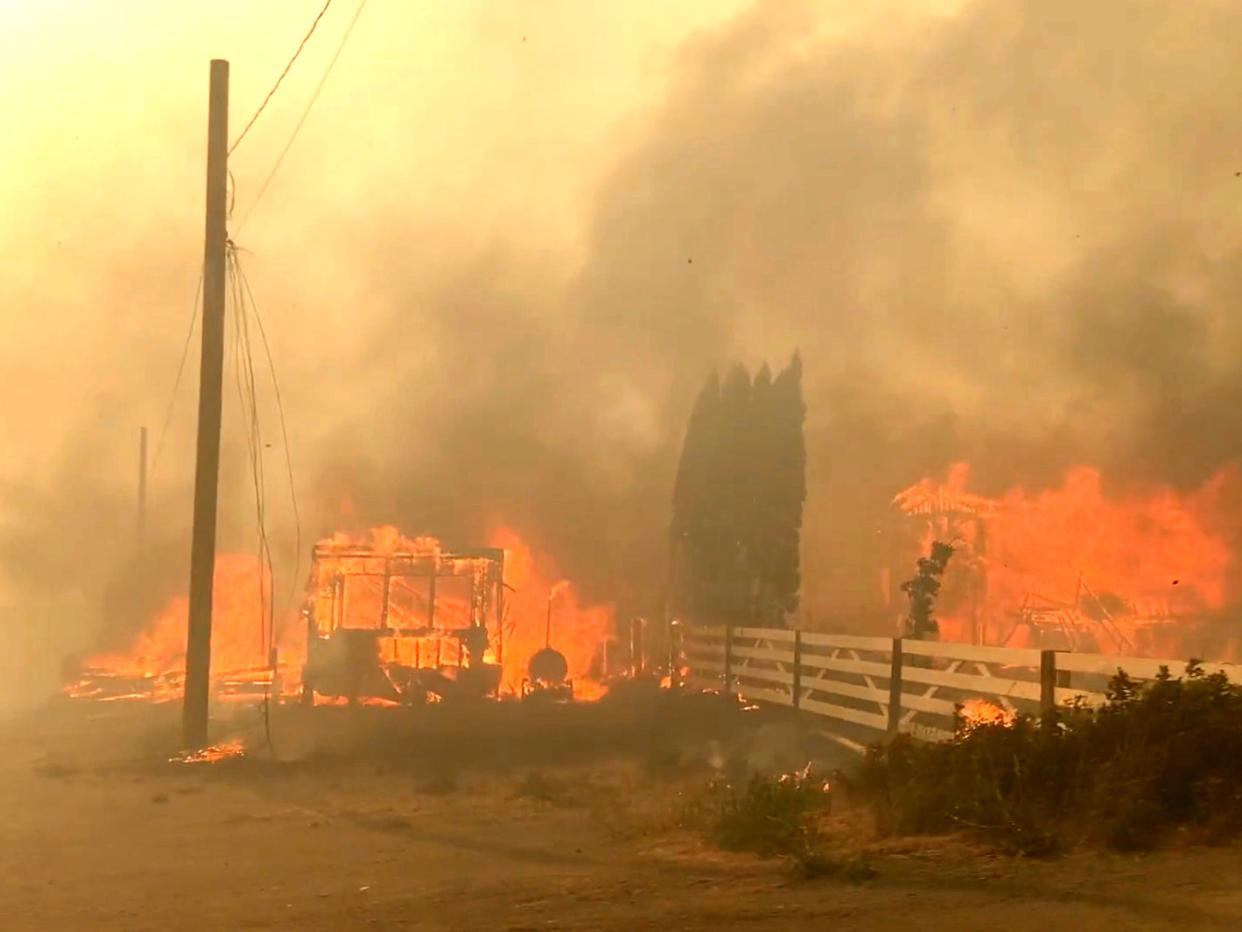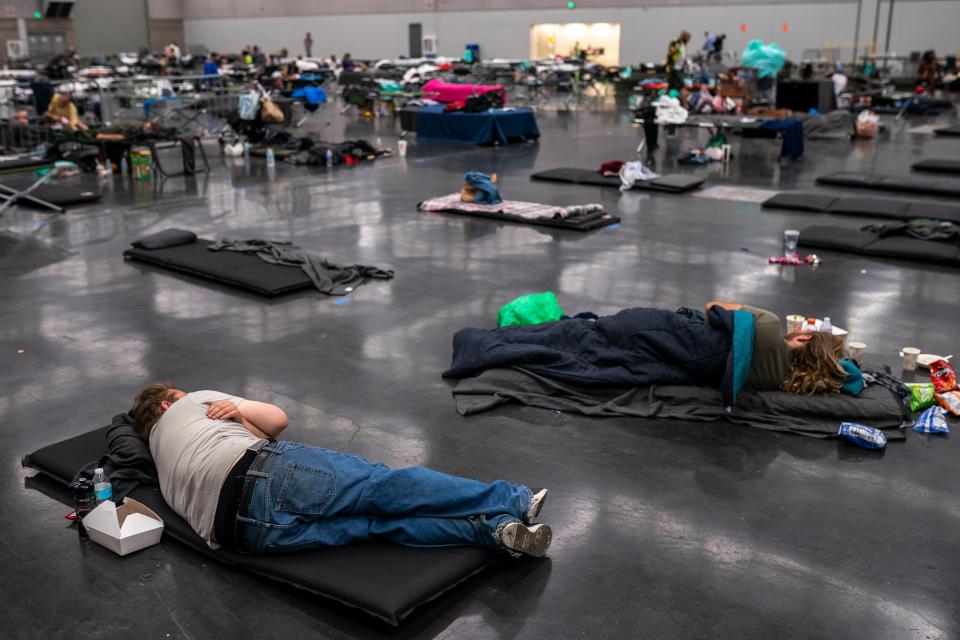‘We are entering uncharted territory’: Climate crisis made North America’s deadly heatwave ‘150 times more likely’

North America’s deadly heatwave, which smashed temperature records across Canada and the western US, was made at least 150 times more likely by the climate crisis, a rapid analysis concludes.
An international team of climate scientists have found that the recent record heat in cities including Vancouver, Seattle and Portland would have been “virtually impossible” without human-driven global heating.
Last week, Canada saw a new record temperature of 49.6C (121F) – more than 4C above the previous record of 45C (113F) . Meanwhile, Seattle and Portland hit new highs of 42.8C (109F) and 46.7C (116F) respectively. Both records are several degrees higher than their predecessors.
The staggering new temperature records have left the scientists stunned.
“It’s an extraordinary event,” Dr Geert Jan van Oldenborgh, a climate scientist and co-leader of the World Weather Attribution initiative, a group of researchers tracking the fingerprint of the climate crisis on extreme weather events, told a press briefing held on Wednesday.
“Within our knowledge, this [heatwave] is basically impossible. It’s surprising and shaking that our theoretical picture of how heatwaves behave has been broken so [dramatically].”
“We are entering uncharted territory,” added co-author Prof Sonia Seneviratne, a climate scientist at ETH Zurich in Switzerland.
The extreme heat has killed hundreds of people across Canada and the US as the death toll continues to mount. Among the dead was Sebastian Francisco Perez, a 38-year-old immigrant farm worker from Guatemala, who collapsed and died while working at a nursery in St Paul, Oregon last Saturday.
Another victim was Debra Moore, 68, who suffered a fall on a street in Enumclaw, Washington, The New York Times reported. Ms Moore had recently undergone chemotherapy and was using a cane or a walker, said local police. She was not discovered for several hours as houses surrounding where she had fallen had closed blinds to shield from the heat.
Soaring temperatures have also fanned the flames of wildfires. In Lytton, where Canada’s highest-ever temperature was recorded, fires razed 32,000 square miles (83,000 sq km) of land last week – destroying most of the town’s buildings and killing at least two people.
“We already knew that climate change was loading the dice against us, but now we know by how much – and it’s enormous,” Prof Katharine Hayhoe, chief scientist at the Nature Conservancy, told The Independent.
“Climate change is no longer a future issue. As this analysis shows, its impacts are here and now – and its costs are being measured not just in dollars, but in human lives.”
In Canada, a leading government minister said that the new analysis underlined how the climate crisis was no longer a looming threat but one that had already arrived.
George Heyman, British Columbia’s Minister of Environment and Climate Change Strategy, told The Independent that people across the province, “have seen the effects of climate change first hand – from the recent unprecedented heatwave to record wildfires, flooding and droughts”.
“We know that climate change is expected to make these types of extreme events more frequent and this new study provides further evidence of the seriousness of the climate crisis and the need for strong, coordinated global action to reduce emissions and build a cleaner economy for everyone,” he said.
He added: “This new study emphasizes that climate change is having significant impacts now and we need to work together to reduce future impacts by both cutting greenhouse gas pollution and continuing to prepare for a changing climate in B.C.”

The researchers have two theories to explain why the temperatures recorded during the recent heatwave were so much higher than those seen previously.
The first is that the climate crisis, which has already caused average global temperatures to increase by around 1.2C since the start of the industrial era, combined with unusual atmospheric conditions – known as the “heat dome” – to create the extreme heat.
If this theory is correct, it means the heatwave was around 2C hotter than it would have been in a world without the climate crisis, the researchers said.
It also means that, if global temperatures reach 2C above pre-industrial levels – the upper limit set by countries under the Paris Agreement – such extreme heat could occur roughly every five to 10 years, according to the findings. At present, such extreme heat is only expected once every 1,000 years.
The second theory is that the world, or at least the North American region studied, has now “crossed a non-linear threshold” – meaning that small increases in temperature are causing greater rises in extreme heat than scientists expected.
“At the moment, we just don’t know,” said Dr van Oldenborgh. “We are planning to continue investigating these possibilities.”
The findings are the latest in a string of scientific analyses linking the climate crisis to recent extreme heat in the UK, Japan, Australia and France, among other regions. The study of how the climate crisis has influenced an extreme weather event is known as “attribution science”.
For the analysis, the team of 27 scientists used a set of climate models to compare the chances of such a heatwave occurring in today’s world to a world without human-caused climate change.
They defined the heatwave as being the maximum daily temperatures recorded in June in a geographical region encompassing Seattle, Portland and Vancouver.
The results are yet to be published in a scientific journal but use peer-reviewed methods.
Environmental campaigners said the analysis was yet another signal that a rapid, global transition is needed away from our reliance on oil, gas and coal.
Shane Moffatt, head of the nature and food campaign for Greenpeace Canada, told The Independent: “The authors’ findings that such extreme heat would be ‘virtually impossible’ without climate change starkly exposes the true costs of our addiction to fossil fuels.
“These unprecedented temperatures are already impacting the most vulnerable in our society and contributing to devastating wildfires that release even more carbon into the atmosphere. It’s a vicious cycle. If our governments value human health over oil company profits, then we need to see a massive shift away from fossil fuels and towards community resilience in 2021.”
Read More
The link between our fossil fuel addiction and worsening extreme heat is undeniable
Heat waves caused warmest June ever in North America
Greenpeace launch legal action against UK government over secrecy on deep sea mining


